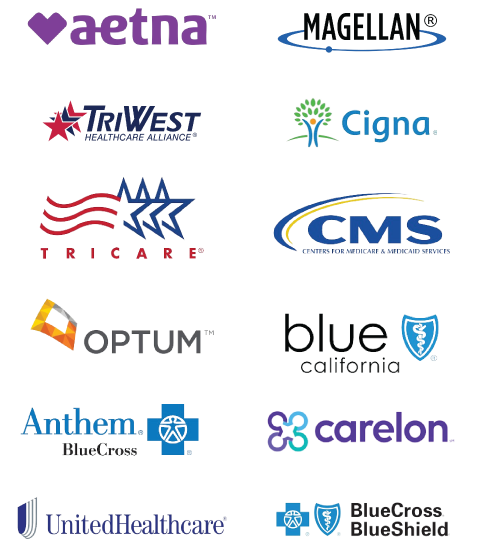
With 40.3 million Americans struggling with drug and alcohol use disorder, one in five Americans has an addict in their close friends or family. That puts nearly 20% of the population at risk of trauma, manipulation, and hurt simply from being around someone who’s struggling with a behavioral health disorder. Addiction changes people, it changes their priorities, and it changes how they respond to you. It can exacerbate interpersonal tension, result in arguments, and result in people being upset and even violent. Addiction can also shift responsibilities including home and money management, having a job, child and homecare, and even caring for the addict to the shoulders of anyone living with them. And, that can result in immense amounts of stress.
It’s not uncommon for the family of people with substance use disorder to need therapy and treatment. However, setting good boundaries is a good first step that will help you to protect yourself and your mental health.
Before You Set Boundaries
It’s important to keep in mind that setting boundaries is a commitment. You have to be able to stick to those boundaries. If you say something and don’t stick to it, your loved one won’t take those boundaries seriously. There should be repercussions to failing to meet boundaries. That might mean spending a few days away from home. It might mean something else. But, you should not set boundaries if you can’t set repercussions for breaking them. Even if those repercussions are being told how much they hurt you.
What Makes Good Boundaries?
Good boundaries establish a comfort zone or safety zone for you. They allow you to take breaks. They allow you to be comfortable in your home and around your partner or family. Sometimes good boundaries are aimed at the addict. In other cases, they’re aimed at yourself. We’ll look at good examples of each type of boundary below.
Boundaries for Yourself:
Setting boundaries for yourself can be as important as setting boundaries for your loved one.
“I will Say No when It’s Good for Me” – we often find ourselves overstretching ourselves, pushing what we’re willing to accept, and exhausting ourselves for the sake of people we love. Sometimes the reason for that is because you love them, and you want them to be better. Learning how to say no can be difficult. It might mean saying no to picking your loved one up at a party late at night when you have to be at work. It might also mean saying no to simple things. Like keeping dinner warm or waiting on them for dinner. Or staying up until they get home. There are obvious things to say no to. For example, lending money, buying them drugs or alcohol, lying for them, etc. It’s important that your boundaries include not enabling drug or alcohol abuse. But, it’s also important that you learn to say no just for yourself as well.
“I will not take responsibility for my loved one’s addiction” – Most of us are hard-wired to try to solve things when they go wrong. That means taking responsibility, blaming ourselves, and fixing it as quickly as possible. The thing is, when it’s someone else’s addiction, you are not responsible. You are not part of the equation. Your unhealthy relationship, trauma, or even mental health disorder may have contributed to an environment in which your loved one was able to become addicted, but it is not your responsibility, and you did not cause it. The things you are responsible for are having and building healthy relationships with the people in your life, in caring for your family, and in caring for yourself. It might feel like if you just try harder, if you just give them more breaks, if you just help them out one more time, they’ll have what they need to get clean and sober. That isn’t true. People get clean and sober by taking responsibility for themselves, by going to treatment, and by putting in the work. And, that has to come from them. Trying to take responsibility for their actions only harms your mental health while slowing their ability to recover on their own.
“I will not get negative” – People with a drug or alcohol use disorder are often negative, difficult, and manipulative. They can start arguments, even about tiny things. They can nitpick, nag, and get angry. And that can be difficult to avoid being drug into. Making a commitment to yourself to step out of that, to simply walk out, and to do your best to avoid getting drug into that negativity can be very good for your mental health. While you won’t always succeed, you can make sure you take time out and time for yourself to destress and relax when you do.
Each of these boundaries are solely about your own behavior. But if you create them and stick to them, you might find that it makes a large difference in your day-to-day life.

Boundaries for Your Loved One
Many boundaries with an addict should be directed at them. However, any boundary not directed at yourself involves someone else’s cooperation. You’ll have to sit down and discuss reasons with them and do so in a way that makes it clear this is about you and your mental health. Here, your approach is important. If you discuss feeling judgement or shame, you’ll likely lose them and their attention. Talk about caring about them, about struggling yourself, and about health.
“I Need You to Not Use Drugs or Alcohol in the House” – Asking someone not to use drugs or alcohol in the house can be a double-edged blade. Here, you get the advantage of having a safer home. That’s very important if you have kids or if you are experiencing a lot of stress. However, it might mean putting your loved one in more danger. For example, they might use outside of where you can conveniently get them to a hospital if something goes wrong. They might start spending more time with others who drink or use as much as they do – which can exacerbate the problem.
“Please Don’t Ask me to Lie” – People with substance use disorders ask us to lie all the time. Sometimes that’s to friends and family with pretending everything is fine. In other cases, it’s to their boss or their teachers. Sometimes, it’s to them. But, every time they ask you to do it, you’re taking accountability for their actions. You’re isolating yourself from those people. And, that makes it harder for you to get help, for you to maintain relationships, and for you to have healthy relationships with those people.
“Please Don’t Make Excuses” – For many of us, excuses are a copout, a way to avoid emotional responsibility, and a way to shift responsibility to something or someone else. If you simply ignore excuses and refuse to take them, you can maybe get your loved one to be more honest with yourself and with them. That might mean refusing to accept reasons why someone was out late. It might mean refusing to take care of their chores without them admitting why they didn’t do them. It might mean making them ask for help. Of course, it’s important to approach these kinds of tactics carefully. People can react badly even violently. Some people build their entire worldview around lies and self-deception and your refusing to accept or work with excuses might force them to go around that. They may react as though you’re manipulating or abusing them. At the same time, by doing so, you reduce their ability to lie to you, to manipulate you, and to make you feel bad with their actions. Of course, that starts with acknowledging that excuses are in fact excuses and not reality to yourself.
Addiction changes people. It changes their behavior. It changes their emotional responses. And, it even changes how they feel in response to things like hugs and emotional intimacy. That can be traumatic to you living with them. Most importantly, that’s without considering mood swings, erratic behavior, potential brushes with crime, and other traumatic behavior addicts frequently engage in. Setting boundaries is about protecting yourself, about giving yourself space, and about taking care of yourself.
Of course, it’s also important to work towards helping them to get treatment and into care. At the same time, your boundaries and mental health should always come first. After all, you can’t help someone if you yourself are struggling too much to do so. Creating good boundaries, maintaining emotional support, and making it clear that help is an option is a good first step.
If you or a loved one is struggling, help is there. And, it can help you to get back to normal. If you need help with mental health treatment, drug rehab, or alcohol rehab Compassion Recovery Center is here to help. Contact us to ask about our mental health programs and how we can support your specific requirements as you move into treatment.





